Use this nursing care plan and management guide to help care for patients with multiple sclerosis. Learn about the nursing assessment, nursing interventions, goals and nursing diagnosis for multiple sclerosis in this guide.
What is Multiple Sclerosis?
Multiple sclerosis (MS) is the most common of the demyelinating disorders and the predominant CNS disease among young adults. MS is a progressive disease caused by demyelination of the white matter of the brain and spinal cord. In this disease, sporadic patches of demyelination throughout the central nervous system induce widely disseminated and varied neurologic dysfunction. MS is characterized by exacerbations and remissions, MS is a major cause of chronic disability in young adults.
The prognosis varies. multiple sclerosis may progress rapidly, disabling some patients by early adulthood or causing death within months of onset. However, 70% of patients lead active, productive lives with prolonged remissions.
The exact cause of MS is unknown, but current theories suggest a slow-acting or latent viral infection and an autoimmune response. Other theories suggest that environmental and genetic factors may also be linked to MS. Stress, fatigue, overworking, pregnancy or acute respiratory tract infections have been known to precede the onset of this illness. MS usually begins between ages 20 and 40. It affects more women than men.
Nursing Care Plans and Management
The nursing care planning goals for patients with multiple sclerosis include managing symptoms such as fatigue, pain, and spasticity, promoting physical mobility and independence, preventing complications such as falls and infections, and providing emotional support and education on self-care and disease management. The main goal is to improve the patient’s quality of life and maintain their functional abilities as much as possible.
Nursing Problem Priorities
The following are the nursing priorities for patients with multiple sclerosis:
- Recognize and assess signs and symptoms of multiple sclerosis (MS).
- Monitor disease progression and assess relapses or flare-ups.
- Manage symptoms and provide supportive care, such as medications for symptom control or physical therapy for mobility and function.
- Educate patients and families about the nature of MS, treatment options, and lifestyle modifications to manage symptoms.
- Coordinate care and referrals to specialists, such as neurologists or rehabilitation therapists.
- Monitor and manage potential complications, such as bladder or bowel dysfunction or cognitive changes.
- Offer emotional support and counseling to patients and families to cope with the impact of MS.
- Advocate for accessibility and accommodations to support individuals with MS in daily activities and employment.
- Schedule regular follow-up appointments to monitor disease progression, adjust treatment plans, and address any concerns or changes in symptoms.
Nursing Assessment
Assess for the following subjective and objective data:
See nursing assessment cues under Nursing Interventions and Actions.
Nursing Diagnosis
Following a thorough assessment, a nursing diagnosis is formulated to specifically address the challenges associated with multiple sclerosis based on the nurse’s clinical judgement and understanding of the patient’s unique health condition. While nursing diagnoses serve as a framework for organizing care, their usefulness may vary in different clinical situations. In real-life clinical settings, it is important to note that the use of specific nursing diagnostic labels may not be as prominent or commonly utilized as other components of the care plan. It is ultimately the nurse’s clinical expertise and judgment that shape the care plan to meet the unique needs of each patient, prioritizing their health concerns and priorities.
Nursing Goals
Goals and expected outcomes may include:
- The patient will identify risk factors and individual actions affecting fatigue.
- The patient will identify alternatives to help maintain desired activity level.
- The patient will participate in the recommended treatment program.
- The patient will report an improved sense of energy.
Nursing Interventions and Actions
Therapeutic interventions and nursing actions for patients with multiple sclerosis may include:
1. Managing Fatigue and Promoting Energy Conservation Techniques
Fatigue is a common symptom in patients with multiple sclerosis due to the disease’s impact on the central nervous system, which can lead to disruptions in nerve signals and cause the body to use more energy to complete simple tasks. Additionally, the immune system’s constant attack on myelin, the protective coating around nerve fibers, may also contribute to the development of fatigue.
Note and accept the presence of fatigue.
Fatigue is the most persistent and common symptom of MS. Studies indicate that the fatigue encountered by patients with MS occurs with the expenditure of minimal energy, is more frequent and severe than “normal” fatigue, has a disproportionate impact on ADLs, has a slower recovery time, and may show no direct relationship between fatigue severity and patient’s clinical neurological status.
Identify and review factors affecting the ability to be active: temperature extremes, inadequate food intake, insomnia, use of medications, and time of day.
Provides an opportunity to problem-solve to maintain or improve mobility.
Investigate the appropriateness of obtaining a service dog.
Service dogs can increase a patient’s level of independence. They can also assist in energy conservation by carrying items in “saddle” bags and retrieving or performing tasks.
Accept when the patient is unable to do activities.
Ability can vary from moment to moment. Nonjudgmental acceptance of patients’ evaluation of day-to-day variations in capabilities provides the opportunity to promote independence while supporting fluctuations in the level of required care.
Determine the need for walking aids. Provide braces, walkers, or wheelchairs. Review safety considerations.
Mobility aids can decrease fatigue, enhancing independence and comfort, as well as safety. However, individuals may display poor judgment about the ability to safely engage in an activity.
Schedule ADLs in the morning if appropriate. Investigate the use of a cooling vest.
Fatigue commonly worsens in the late afternoon (when body temperature rises). Some patients report a lessening of fatigue with stabilization of body temperature.
Plan care consistent rest periods between activities. Encourage afternoon naps.
Reduces fatigue, and aggravation of muscle weakness.
Assist with physical therapy. Increase patient comfort with massages and relaxing baths.
Reduces fatigue and promotes a sense of wellness.
Stress the need for stopping exercise or activity just short of fatigue.
Pushing self beyond individual physical limits can result in excessive or prolonged fatigue and discouragement. In time, the patient can become very adept at knowing limitations.
Recommend participation in groups involved in fitness or exercise and/or the Multiple Sclerosis Society.
Can help the patient to stay motivated to remain active within the limits of the disability or condition. Group activities need to be selected carefully to meet the patient’s needs and prevent discouragement or anxiety.
Prepare for plasma exchange treatment as indicated.
Research suggests that individuals experiencing severe exacerbations not responding to standard therapy may benefit from a course of plasma exchange
Administer medications as indicated.
See pharmacological management.
2. Assisting in Self-Care Activities
Patients with multiple sclerosis may experience a self-care deficit due to the disease’s impact on their physical and cognitive abilities, as well as their emotional well-being. The symptoms of multiple sclerosis, such as fatigue, muscle weakness, and cognitive impairment, may make it challenging for patients to perform activities of daily living, and they may require assistance from family members to maintain their independence.
Determine the current activity level and physical condition. Assess the degree of functional impairment using a 0–4 scale.
Provides information to develop a plan of care for rehabilitation. Note: Motor symptoms are less likely to improve than sensory ones.
Note the presence of fatigue.
Fatigue experienced by patients with MS can be very debilitating and greatly impact the ability to participate in ADLs. The subjective nature of reports of fatigue can be misinterpreted by healthcare providers and family, leading to conflict and the belief that the patient is “manipulative” when, in fact, this may not be the case.
Encourage the patient to perform self-care to the maximum ability as defined by the patient. Do not rush the patient.
Promotes independence and a sense of control; may decrease feelings of helplessness.
Assist according to the degree of disability; allow as much autonomy as possible.
Participation in own care can ease the frustration over the loss of independence.
Encourage patient input in the planning schedule.
Patients’ quality of life is enhanced when desires and likes are considered in daily activities.
Encourage scheduling activities early in the day or during the time when the energy level is best.
Patients with MS expend a great deal of energy to complete ADLs, increasing the risk of fatigue, which often progresses through the day.
Allot sufficient time to perform tasks, and display patience when movements are slow.
Decreased motor skills and spasticity may interfere with the ability to manage even simple activities.
Anticipate hygienic needs and calmly assist as necessary with the care of nails, skin, and hair; mouth care; shaving.
Caregiver’s example can set a matter-of-fact tone for acceptance of handling mundane needs that may be embarrassing to the patient and repugnant to SO.
Provide assistive devices and aids as indicated: shower chair and elevated toilet seat with arm supports.
Reduces fatigue, enhancing participation in self-care.
Reposition frequently when the patient is immobile (bed or chair bound). Provide skin care to pressure points, such as sacrum, ankles, and elbows. Position properly and encourage to sleep prone as tolerated.
Reduces pressure on susceptible areas, and prevents skin breakdown. Minimizes flexor spasms at knees and hips.
Provide massage and active or passive ROM exercises on a regular schedule. Encourage the use of splints or footboards as indicated.
Prevents problems associated with muscle dysfunction and disuse. Helps maintain muscle tone and strength and joint mobility, and decreases the risk of loss of calcium from bones.
Encourage stretching and toning exercises and use of medications, cold packs, and splints, and maintenance of proper body alignment, when indicated.
Helps decrease spasticity and its effects.
Problem-solve ways to meet nutritional and fluid needs.
Provides for adequate intake and enhances the patient’s feelings of independence or self-esteem.
Consult with a physical and/or occupational therapist.
Useful in identifying devices and/or equipment to relieve spastic muscles, improve motor functioning, prevent and reduce muscular atrophy and contractures, promoting independence and an increasing sense of self-worth.
3. Providing Emotional Support and Improving Self-Esteem
Patients with multiple sclerosis may experience low self-esteem due to the chronic and unpredictable nature of the disease, which can lead to feelings of helplessness and loss of control. Additionally, the physical and cognitive symptoms of multiple sclerosis can impact a patient’s ability to perform daily activities, maintain social connections, and pursue their interests, which can also contribute to feelings of isolation and low self-worth.
Note withdrawn behaviors and use of denial or over-concern with the body and disease process.
Initially may be a normal protective response, but if prolonged, may prevent dealing appropriately with reality and may lead to ineffective coping.
Note the presence of depression and impaired thought processes, and expressions of suicidal ideation (evaluate on a scale of 1–10).
Adapting to a long-term, progressively debilitating incurable disease is a difficult emotional adjustment. In addition, cognitive impairment may affect adaptation to life changes. A depressed individual may believe that suicide is the best way to deal with what is happening.
Assess the interaction between the patient and significant other (SO). Note changes in the relationship.
SO may unconsciously or consciously reinforce negative attitudes and beliefs of the patient, or issues of secondary gain may interfere with progress and ability to manage a situation.
Support the use of defense mechanisms, allowing the patient to deal with information in own time and way.
Confronting the patient with the reality of the situation may result in increased anxiety and lessened ability to cope with a changed self-concept/role.
Acknowledge the reality of the grieving process related to actual or perceived changes. Help the patient deal realistically with feelings of anger and sadness.
The nature of the disease leads to ongoing losses and changes in all aspects of life, blocking the resolution of the grieving process.
Establish and maintain a therapeutic nurse-patient relationship, discussing fears and concerns.
Conveys an attitude of caring and develops a sense of trust between patient and caregiver in which the patient is free to express fears of rejection, loss of the previous functioning and/or appearance, feelings of helplessness, and powerlessness about changes that may occur. Promotes a sense of well-being for the patient.
Review information about the course of the disease, the possibility of remissions, and prognosis.
When a patient learns about the disease and becomes aware that own behavior (including feeling hopeful/ maintaining a positive attitude) can significantly improve general well-being and daily functioning, the patient may feel more in control, enhancing a sense of self-esteem. Note: Some patients may never have a remission.
Provide accurate verbal and written information about what is happening and discuss with the patient/SO.
Helps patients stay in the “here and now,” reduces the fear of the unknown; provides a reference source for future use.
Explain that labile emotions are not unusual. Problem-solve ways to deal with these feelings.
Relieves anxiety and assists with efforts to manage unexpected emotional displays.
Provide an open environment for the patient and SO to discuss concerns about sexuality, including management of fatigue, spasticity, arousal, and changes in sensation.
Physical and psychological changes often create stressors within the relationship, affecting usual roles and expectations, and further impairing self-concept.
Discuss the use of medications and adjuncts to improve sexual function.
The patient and partner may want to explore a trial of medications (papaverine [Pavabid], dinoprostone [Prostin E2]) or other avenues for improving the sexual relationship.
Consult with an occupational therapist/ rehabilitation team.
Identifying assistive devices and/or equipment enhances the level of overall function and participation in activities, enhancing a sense of well-being and viewing the self as a capable individual.
Note behaviors indicative of powerlessness or hopelessness. The patient may say statements of despair.
The degree to which the patient believes own situation is hopeless, that he or she is powerless to change what is happening, affects how the patient handles life situation.
Determine the degree of mastery the patient has exhibited in life to the present. Note locus of control.
A patient who has assumed responsibility in life previously tends to do the same during difficult times of exacerbation of illness. However, if the locus of control has been focused outward, the patient may blame others and not take control over own circumstances.
Acknowledge the reality of the situation, at the same time expressing hope for the patient.
Although the prognosis may be discouraging, remissions may occur, and because the future cannot be predicted, hope for some quality of life should be encouraged. Additionally, research is ongoing and new treatment options are being initiated.
Encourage and assist the patient to identify activities he or she would like to be involved in within the limits of his or her abilities.
Staying active and interacting with others counteract feelings of helplessness.
Discuss plans for the future. Suggest visiting alternative care facilities, and taking a look at the possibilities for care as the condition changes.
When options are considered and plans are made for any eventuality, the patient has a sense of control over own circumstances.
Assist the patient to identify factors that are under own control. List things that can or cannot be controlled.
Knowing and accepting what is beyond individual control can reduce helpless or acting out behaviors, and promote focusing on areas individuals can control.
Encourage the patient to assume control over as much of own care as possible.
Even when unable to do much physical care, an individual can help plan care, having a voice in what is desired or not.
Discuss needs openly with patient/SO, setting up agreed-on routines for meeting identified needs.
Helps deal with manipulative behavior, when the patient feels powerless and not listened to.
Incorporate the patient’s daily routine into the home care schedule or hospital stay, as possible.
Maintains a sense of control and self-determination and independence.
Refer to vocational rehabilitation as indicated.
Can assist the patient to develop and implement a vocational plan incorporating specific interests and/or abilities.
Identify community resources.
Participation in structured activities can reduce a sense of isolation and may enhance the feeling of self-worth.
4. Promoting Effective Coping
Patients with multiple sclerosis may be at maladaptive coping due to the chronic and unpredictable nature of the disease, which can cause significant physical, emotional, and social stress. The impact of multiple sclerosis on the patient’s quality of life, social support system, and financial well-being can also contribute to feelings of frustration, anxiety, and depression, which may further impair their ability to cope effectively.
Assess current functional capacity and limitations; note the presence of distorted thinking processes, labile emotions, and cognitive dissonance. Note how these affect the individual’s coping abilities.
Organic or psychological effects may cause the patient to be easily distracted, to display difficulties with concentration, problem-solving, dealing with what is happening, and being responsible for own care.
Determine the patient’s understanding of the current situation and previous methods of dealing with life’s problems.
Provides a clue as to how a patient may deal with what is currently happening and helps identify individual resources and need for assistance.
Observe nonverbal communication: posture, eye contact, movements, gestures, and use of touch. Compare with verbal content and verify meaning with the patient as appropriate.
May provide significant information about what the patient is feeling; however, verification is important to ensure the accuracy of communication. The discrepancy between feelings and what is being said can interfere with the ability to cope and problems solving.
Discuss the ability to make decisions, care for children or dependent adults, and handle finances. Identify options available to individuals involved.
Impaired judgment, confusion, and inadequate support systems may interfere with the ability to meet own needs and the needs of others. Conservatorship, guardianship, or adult protective services may be required until (if ever) the patient is able to manage own affairs.
Maintain an honest, reality-oriented relationship.
Reduces confusion and minimizes painful, frustrating struggles associated with adaptation to an altered environment or lifestyle.
Encourage verbalization of feelings and/or fears, accepting what the patient says in a nonjudgmental manner. Note statements reflecting powerlessness, and inability to cope.
May diminish patients’ fear, establish trust, and provide an opportunity to identify problems and begin the problem-solving process.
Provide clues for orientation: calendars, clocks, notecards, and organizers.
These serve as tangible reminders to aid recognition and permeate memory gaps and enable patients to cope with the situation.
Encourage the patient to tape-record important information and listen to the recording periodically.
Repetition puts information in long-term memory, where it is more easily retrieved and can support decision-making and problem-solving process.
Administer medications as appropriate: amitriptyline (Elavil); bupropion (Wellbutrin); imipramine (Tofranil)
Medications to improve mood and restful sleep may be useful in combating depression and relieving a degree of fatigue interfering with function.
Refer to the cognitive retraining program.
Improving cognitive abilities can enhance basic thinking skills when attention span is short; the ability to process information is impaired; the patient is unable to learn new tasks; or insight, judgment, and problem-solving skills are impaired.
Refer to counseling, psychiatric clinical nurse specialist, and/or psychiatrist, as indicated.
May need additional help to resolve issues of self-esteem and regain effective coping skills.
Note the length, and severity of the illness. Determine the patient’s role in the family and how illness has changed the family organization.
Chronic illness, accompanied by changes in role performance and responsibility, often exhausts the supportive capacity and coping abilities of SO or family.
Determine SO’s understanding of the disease process and expectations for the future.
Inadequate information and misconception regarding disease process and/or unrealistic expectations affect the ability to cope with the current situation. Note: A particular area of misconception is the fatigue experienced by patients with MS. Family members may view a patient’s inability to perform activities as manipulative behavior rather than an actual physiological deficit.
Assess other factors that are affecting the abilities of family members to provide needed support.
Individual members’ preoccupation with own needs and concerns can interfere with providing needed care and support for the stresses of long-term illness. Additionally, caregiver(s) may incur a decrease or loss of income or risk losing own health insurance if they alter their work hours.
Discuss with SO/family members their willingness to be involved in care. Identify other responsibilities and factors impacting participation.
Individuals may not have the desire or time to assume responsibility for care. If several family members are available, they may be able to share tasks.
Discuss the underlying reasons for the patient’s behaviors.
Helps SO understand and accept and deal with behaviors that may be triggered by the emotional or physical effects of MS.
Encourage the patient and SO to develop and strengthen problem-solving skills to deal with the situation.
Family may or may not have handled conflict well before illness, and the stress of a long-term debilitating condition can create additional problems (including unresolved anger).
Encourage free expression of feelings, including frustration, anger, hostility, and hopelessness.
Individual members may be afraid to express “negative” feelings, believing it will discourage patients. Free expression promotes awareness and can help with the resolution of feelings and problems (especially when done in a caring manner).
Identify community resources and local MS organizations, support groups, home care agencies, and respite programs.
Provides information, opportunities to share with others who are experiencing similar difficulties, and sources of assistance when needed.
Refer to a social worker, financial adviser, psychiatric clinical nurse specialist, and psychiatrist as appropriate.
May need more in-depth assistance from professional sources.
Note the physical/mental condition and therapeutic regimen of the care receiver.
Determines individual needs for planning care. Identifies strengths and how much responsibility the patient may be expected to assume, as well as disabilities requiring accommodation.
Determine the caregiver’s level of commitment, responsibility, involvement in, and anticipated length of care. Use assessment tools, such as Burden Interview, to further determine the caregiver’s abilities, when appropriate.
Progressive debilitation taxes the caregiver and may alter the ability to meet the patient or own needs.
Discuss the caregiver’s view of and about the situation.
Allows ventilation and clarification of concerns, promoting understanding.
Facilitate family conferences to share information and develop a plan for involvement in care activities as appropriate.
When others are involved in care, the risk of one person’s becoming overloaded is lessened.
Identify additional resources to include financial, and legal assistance.
These areas of concern can add to the burden of caregiving if not adequately resolved.
Identify adaptive equipment needs and resources for the home and vehicles.
Enhances the independence and safety of both caregiver and patient.
Provide information and/or demonstrate techniques for dealing with acting-out or violent or disoriented behavior.
Helps the caregiver maintain a sense of control and competency. Enhances safety for care receiver and caregiver.
Stress the importance of self-nurturing: pursuing self-development interests, personal needs, hobbies, and social activities.
Taking time for self can lessen the risk of “burnout”/being overwhelmed by the situation.
Identify alternate care sources (such as a sitter or daycare facility), senior care services, and home care agencies.
As the patient’s condition worsens, SO may need additional help from several sources to maintain the patient at home even on a part-time basis.
Determine available supports and resources currently used.
Organizations can provide information regarding the adequacy of support and identify needs.
Assist the caregiver to plan for changes that may be necessary for the care receiver (eventual placement in an extended care facility).
Planning for this eventually is important for the time when the burden of care becomes too great.
Refer to supportive services as need indicates.
A medical case manager or social services consultant may be needed to develop an ongoing plan to meet the changing needs of the patient and SO/family.
5. Promoting Effective Bladder and Bowel Control
Patients with multiple sclerosis may experience impaired urinary elimination due to damage to the nerves that control bladder function, which can result in bladder dysfunction, urinary urgency, frequency, and incontinence. Additionally, the physical and cognitive symptoms of multiple sclerosis, such as muscle weakness and impaired mobility, may make it difficult for patients to reach the toilet in time or perform self-catheterization, which can further contribute to urinary problems.
Note reports of urinary frequency, urgency, burning, incontinence, nocturia, and size or force of the urinary stream. Palpate bladder after voiding.
Provides information about the degree of interference with elimination or may indicate a bladder infection. Fullness over the bladder following void is indicative of inadequate emptying or retention and requires intervention.
Obtain periodic urinalysis and urine culture and sensitivity as indicated.
Monitors renal status. A colony count over 100,000 indicates the presence of infection requiring treatment.
Review drug regimen, including prescribed, over-the-counter (OTC).
A number of medications such as some antispasmodics, antidepressants, and narcotic analgesics; OTC medications with anticholinergic or alpha agonist properties; or recreational drugs such as cannabis may interfere with bladder emptying.
Institute bladder training program or timed voidings as appropriate.
Helps restore adequate bladder functioning; lessens the occurrence of incontinence and bladder infection.
Encourage adequate fluid intake, avoiding caffeine and use of aspartame, and limiting intake during the late evening and at bedtime. Recommend the use of cranberry juice/ vitamin C.
Sufficient hydration promotes urinary output and aids in preventing infection. Note: When the patient is taking sulfa drugs, sufficient fluids are necessary to ensure adequate excretion of the drug, reducing the risk of cumulative effects. Note: Aspartame, a sugar substitute (e.g., Nutrasweet), may cause bladder irritation leading to bladder dysfunction.
Promote continued mobility.
Decreases risk of developing UTI.
Recommend good hand washing and proper perineal care.
Reduces skin irritation and the risk of ascending infection.
Encourage the patient to observe for sediments or blood in urine, foul odor, fever, or unexplained increase in MS symptoms.
Indicative of infection requiring further evaluation or treatment.
Catheterize as indicated.
May be necessary as a treatment and for evaluation if the patient is unable to empty the bladder or retains urine.
Teach self-catheterization and instruct in the use and care of the indwelling catheter.
Helps patients maintain autonomy and encourages self-care. An indwelling catheter may be required, depending on the patient’s abilities and the degree of the urinary problem.
Refer to a urinary continence specialist as indicated.
Helpful for developing an individual plan of care to meet patients’ specific needs using the latest techniques, and continence products.
6. Initiating Patient Education and Health Teachings
Evaluate the desire and readiness of the patient and SO and/or caregiver to learn.
Determines the amount or level of information to provide at any given moment.
Note signs of emotional lability or whether the patient is in a dissociative state (loss of affect, inappropriate emotional responses).
The patient will not process or retain information and will have difficulty learning during this time.
Identify signs and symptoms requiring further evaluation.
Prompt intervention may help limit the severity of exacerbation or complications.
Identify actions that can be taken to avoid injury, e.g., avoid hot baths, inspect skin regularly, take care with transfers and wheelchair/ walker mobility, force fluids, and get adequate nutrition. Encourage avoidance of persons with upper respiratory infections.
A review of risk factors can help the patient take measures to maintain a physical state at an optimal level/prevent complications.
Identify financial concerns.
Loss or change of employment (for the patient and/or SO) impacts income, insurance benefits, and level of independence, requiring additional family and social support.
Provide information in varied formats depending on the patient’s cognitive or perceptual abilities and consider the patient’s locus of control.
Changes in cognitive, visual, and auditory function impact the choice of teaching modalities: verbal instruction, books, pamphlets, audiovisuals, and computer programs. Whether the locus of control is internal or external affects a patient’s attitude toward the helpfulness of learning.
Encourage active participation of the patient or SO in the learning process, including the use of self-paced instruction as appropriate.
Enhances a sense of independence and control and may strengthen the commitment to the therapeutic regimen.
Review disease process or prognosis, effects of climate, emotional stress, overexertion, and fatigue.
Clarifies patient or SO understanding of the individual situation.
Discuss the importance of a daily routine of rest, exercise, activity, and eating, focusing on current capabilities. Instruct in the use of appropriate devices to assist with ADLs, e.g., eating utensils, and walking aids.
Helps the patient maintain the current level of physical independence and may limit fatigue.
Stress the necessity of weight control.
Excess weight can interfere with balance and motor abilities and make care more difficult.
Review possible problems that may arise, such as decreased perception of heat and pain, susceptibility to skin breakdown, and infections, especially UTIs.
These effects of demyelination and associated complications may compromise patient safety and/or precipitate an exacerbation of symptoms.
Discuss the increased risk of osteoporosis and review preventive measures, e.g., regular exercise, intake of calcium and vitamin D, reduced intake of caffeine, cessation of smoking, hormone replacement therapy (HRT) or alternatives (e.g., bisphosphonates—Fosamax), and fall prevention measures such as wearing low-heeled shoes with nonskid soles, use of handrails/ grab bars in the bathroom and along stairwells, removal of small area rugs.
Decreased mobility, vitamin D deficiency (possibly a result increased of decreased exposure to sunlight, which can exacerbate MS symptoms), and decreased likelihood of engaging in preventive measures increase bone mass loss and the risk of fractures.
Identify bowel elimination concerns. Recommend adequate hydration and intake of fiber; use of stool softeners, bulking agents, suppositories, or possibly mild laxatives; bowel training program.
Constipation is common, and bowel urgency and/or accidents may occur as a result of dietary deficiencies or impaction.
Review specifics of individual medications. Recommend avoidance of OTC drugs.
Reduces the likelihood of drug interactions and/or adverse effects, and enhances cooperation with the treatment regimen.
Discuss concerns regarding sexual relationships, contraception, reproduction, and the effects of pregnancy on an affected woman. Identify alternative ways to meet individual needs; counsel regarding the use of artificial lubrication (females), genitourinary (GU) referral for males regarding available medication, and sexual aids.
Pregnancy may be an issue for the young patient relative to issues of genetic predisposition and/or ability to manage pregnancy or parent-offspring. Increased libido is not uncommon and may require adjustments within the existing relationship or in the absence of an acceptable partner. Information about different positions and techniques and/or other options for sexual fulfillment (e.g., fondling, cuddling) may enhance the personal relationship and feelings of self-worth.
Encourage the patient to set goals for the future while focusing on the “here and now,” and what can be done today.
Having a plan for the future helps retain hope and provides an opportunity for the patient to see that although today is to be lived, one can plan for tomorrow even in the worst of circumstances.
Refer for vocational rehabilitation as appropriate.
May need assessment of capabilities and job retraining as indicated by individual limitations and disease progression.
Recommend contacting local and national MS organizations, and relevant support groups.
Ongoing contact (e.g., mailings) informs the patient of programs and services available and can update the patient’s knowledge base. Support groups can provide role modeling, and sharing of information, and enhance problem-solving ability.
7. Administer Medications and Provide Pharmacologic Support
Amantadine (Symmetrel); pemoline (Cylert)
Useful in the treatment of fatigue. Positive antiviral drug effect in 30%–50% of patients. Use may be limited by side effects of increased spasticity, insomnia, and paresthesias of hands and feet.
Methylphenidate (Ritalin), modafinil (Provigil)
CNS stimulants may reduce fatigue but may also cause side effects of nervousness, restlessness, and insomnia.
Sertraline (Zoloft), fluoxetine (Prozac)
Antidepressants useful in lifting the mood, and “energizing” a patient (especially when depression is a factor) and when the patient is free of anticholinergic side effects.
Tricyclic antidepressants: amitriptyline (Elavil), nortriptyline (Pamelor)
Useful in treating emotional lability, neurogenic pain, and associated sleep disorders to enhance willingness to be more active.
Anticonvulsants: carbamazepine (Tegretol), gabapentin (Neurontin), lamotrigine (Lamictal)
Used to treat neurogenic pain and sudden intermittent spasms related to spinal cord irritation.
Steroids: prednisone (Deltasone), dexamethasone (Decadron), methylprednisolone (Solu-Medrol)
May be used during acute exacerbations to reduce and prevent edema formation at the sclerotic plaques. Note: Long-term therapy seems to have little effect on the progression of symptoms.
Vitamin B
Supports nerve-cell replication, enhances metabolic functions and may increase a sense of well-being and energy level.
Immunomodulating agents: cyclophosphamide (Cytoxan), azathioprine (Imuran), methotrexate (Mexate), interferon [beta]-1B (Betaseron); interferon [beta]-1A (Avonex, Rebif), glatiramer (Copaxone); mitoxantrone (Novantrone)
May be used to treat acute relapses, reduce the frequency of relapses, and promote remission. Interferon [beta]-1B (Betaseron) has been approved for use by ambulatory patients with remitting relapsing MS and is the first drug found to alter the course of the disease. Current research indicates early treatment with drugs that reduce inflammation and lesion formation may limit permanent damage. Therapy of choice is “A, B, C” drugs: Avonex, Betaseron, and Copaxone. Therapeutic benefits have been reported in patients at all stages of disability with a reduction in both steroid use and hospital days. (Copaxone chemically resembles a component of myelin and may act as a decoy, diverting immune cells away from myelin target.) Note: Novantrone may be used if other medications are not effective but are contraindicated in patients with primary progressive MS.
Tizanidine (Zanaflex), baclofen (Lioresal), and carbamazepine (Tegretol)
Newer drugs are used for reducing spasticity, promoting muscle relaxation, and inhibiting reflexes at the spinal nerve root level. Enhance mobility and maintenance of activity. Tizanidine (Zanaflex) may have an additive effect with baclofen (Lioresal) but use it with caution because both drugs have similar side effects. A short duration of action requires careful individualizing of dosage to maximize therapeutic effect.
Diazepam (Valium), clonazepam (Klonopin), cyclobenzaprine (Flexeril), gabapentin (Neurontin, dantrolene (Dantrium)
A variety of medications are used to reduce spasticity. The mechanisms are not well understood, and responses vary in each person. Therefore, it may take a period of medication trials to discover what provides the most effective relief of muscle spasticity and associated pain. Note: Adverse effects may be increased muscle weakness, loss of muscle tone, and liver toxicity.
Meclizine (Antivert), scopolamine patches (Transderm-Scop)
Reduces dizziness, allowing the patient to be more mobile.
Administer the following medications as ordered: Oxybutynin (Ditropan), propantheline (Pro-Banthine), hyoscyamine sulfate (Cytospaz-M), flavoxate hydrochloride (Urispas), tolterodine (Detrol).
Reduce bladder spasticity and associated symptoms of frequency, urgency, incontinence, nocturia.
Administer anti-infective agents as necessary: Nitrofurantoin macrocrystals. (Macrodantin); co-trimoxazole (Bactrim, Septra); ciprofloxacin (Cipro); norfloxacin (Noroxin).
Bacteriostatic agents inhibit bacterial growth and destroy susceptible bacteria. Prompt treatment of infection is necessary to prevent serious complications of sepsis/shock.
Recommended Resources
Recommended nursing diagnosis and nursing care plan books and resources.
Disclosure: Included below are affiliate links from Amazon at no additional cost from you. We may earn a small commission from your purchase. For more information, check out our privacy policy.
Ackley and Ladwig’s Nursing Diagnosis Handbook: An Evidence-Based Guide to Planning Care
We love this book because of its evidence-based approach to nursing interventions. This care plan handbook uses an easy, three-step system to guide you through client assessment, nursing diagnosis, and care planning. Includes step-by-step instructions showing how to implement care and evaluate outcomes, and help you build skills in diagnostic reasoning and critical thinking.
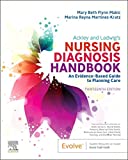
Nursing Care Plans – Nursing Diagnosis & Intervention (10th Edition)
Includes over two hundred care plans that reflect the most recent evidence-based guidelines. New to this edition are ICNP diagnoses, care plans on LGBTQ health issues, and on electrolytes and acid-base balance.
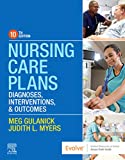
Nurse’s Pocket Guide: Diagnoses, Prioritized Interventions, and Rationales
Quick-reference tool includes all you need to identify the correct diagnoses for efficient patient care planning. The sixteenth edition includes the most recent nursing diagnoses and interventions and an alphabetized listing of nursing diagnoses covering more than 400 disorders.

Nursing Diagnosis Manual: Planning, Individualizing, and Documenting Client Care
Identify interventions to plan, individualize, and document care for more than 800 diseases and disorders. Only in the Nursing Diagnosis Manual will you find for each diagnosis subjectively and objectively – sample clinical applications, prioritized action/interventions with rationales – a documentation section, and much more!
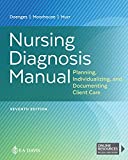
All-in-One Nursing Care Planning Resource – E-Book: Medical-Surgical, Pediatric, Maternity, and Psychiatric-Mental Health
Includes over 100 care plans for medical-surgical, maternity/OB, pediatrics, and psychiatric and mental health. Interprofessional “patient problems” focus familiarizes you with how to speak to patients.
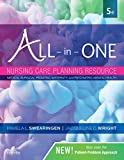
See also
Other recommended site resources for this nursing care plan:
- Nursing Care Plans (NCP): Ultimate Guide and Database MUST READ!
Over 150+ nursing care plans for different diseases and conditions. Includes our easy-to-follow guide on how to create nursing care plans from scratch. - Nursing Diagnosis Guide and List: All You Need to Know to Master Diagnosing
Our comprehensive guide on how to create and write diagnostic labels. Includes detailed nursing care plan guides for common nursing diagnostic labels.
Other nursing care plans related to neurological disorders:
- Alzheimer’s Disease | 15 Care Plans
- Brain Tumor | 3 Care Plans
- Cerebral Palsy | 7 Care Plans
- Cerebrovascular Accident | 12 Care Plans
- Guillain-Barre Syndrome | 6 Care Plans
- Meningitis | 7 Care Plans
- Multiple Sclerosis | 9 Care Plans
- Parkinson’s Disease | 9 Care Plans
- Seizure Disorder | 4 Care Plans
- Spinal Cord Injury | 12 Care Plans
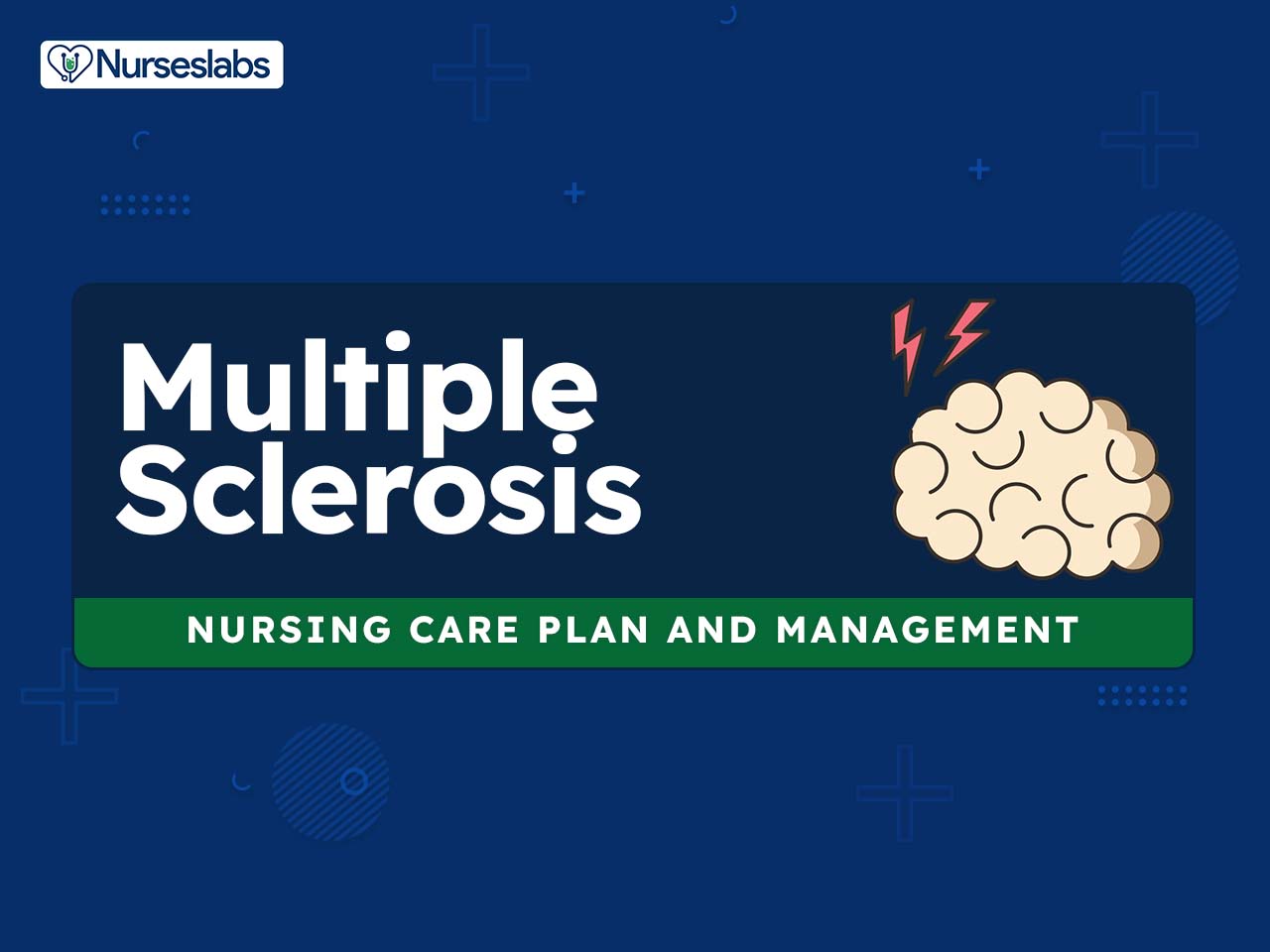
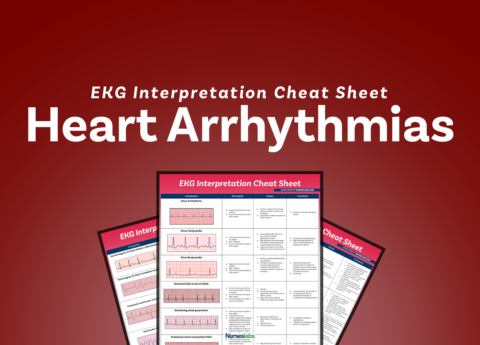
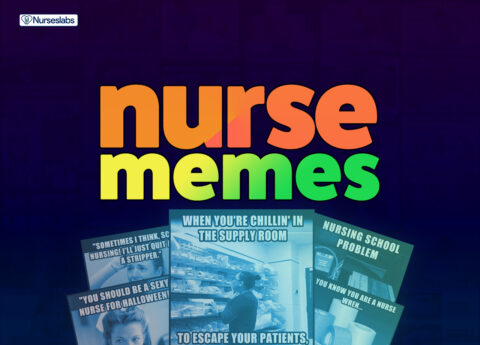
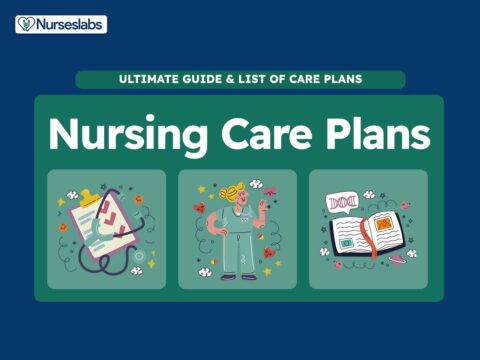
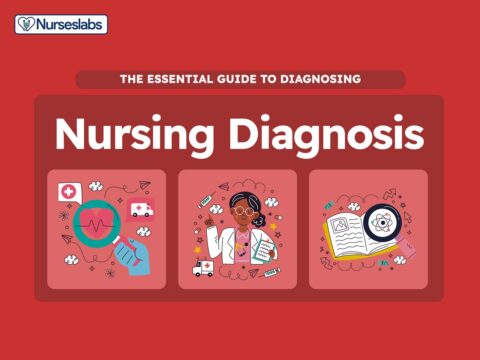
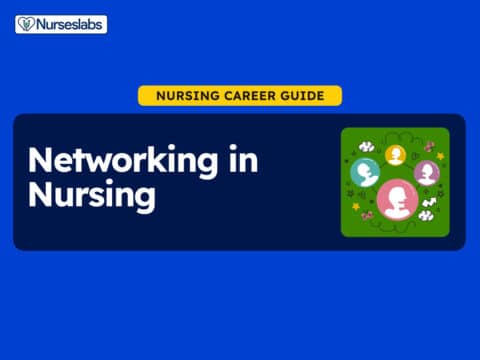



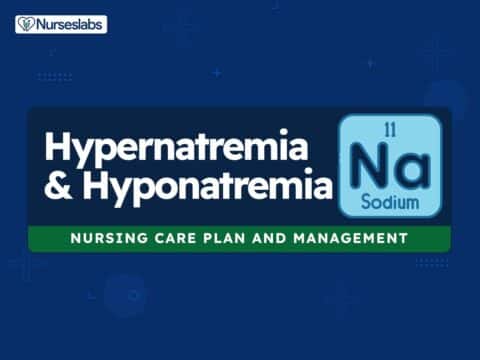


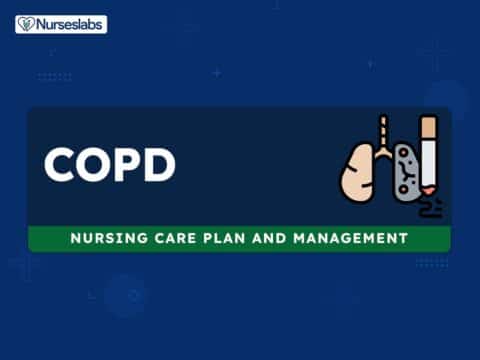
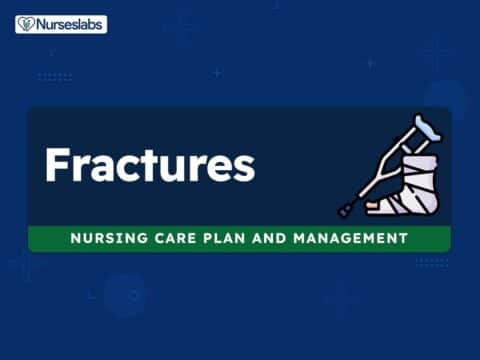
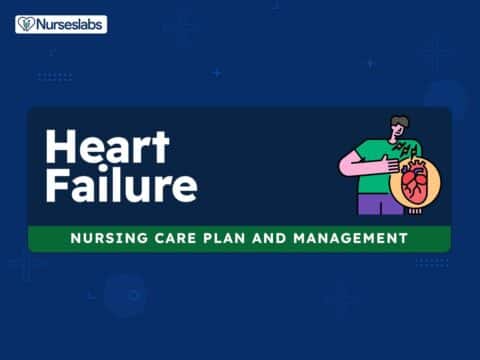
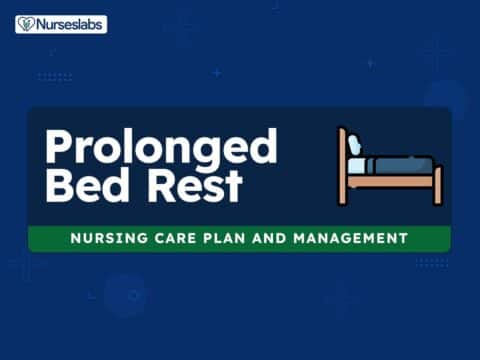
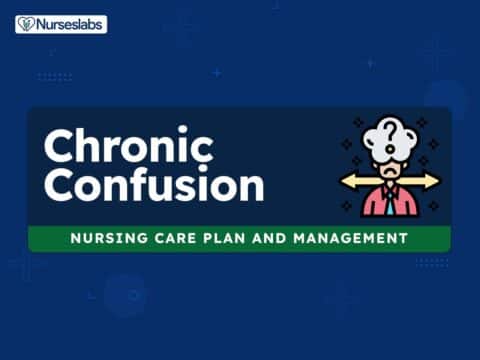
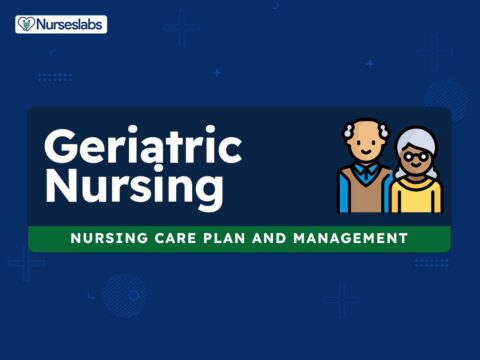
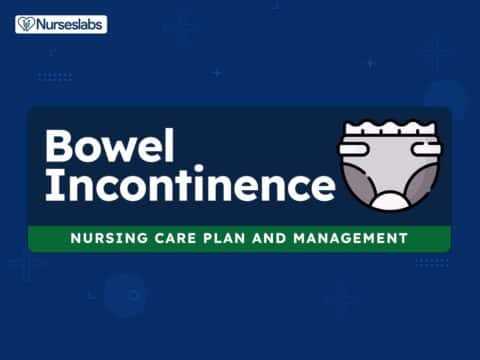
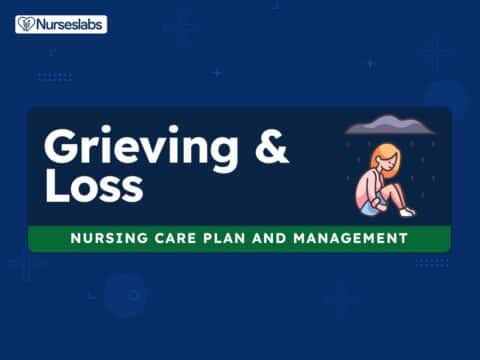
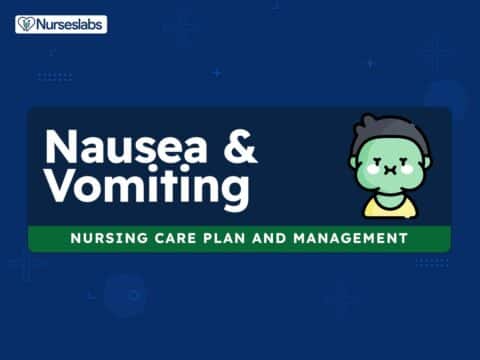
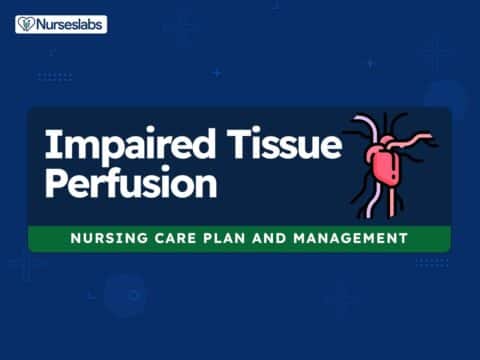

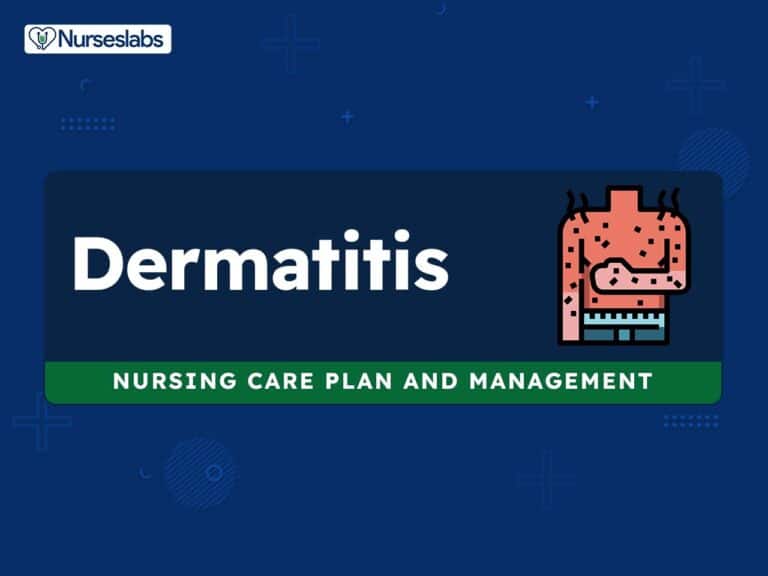
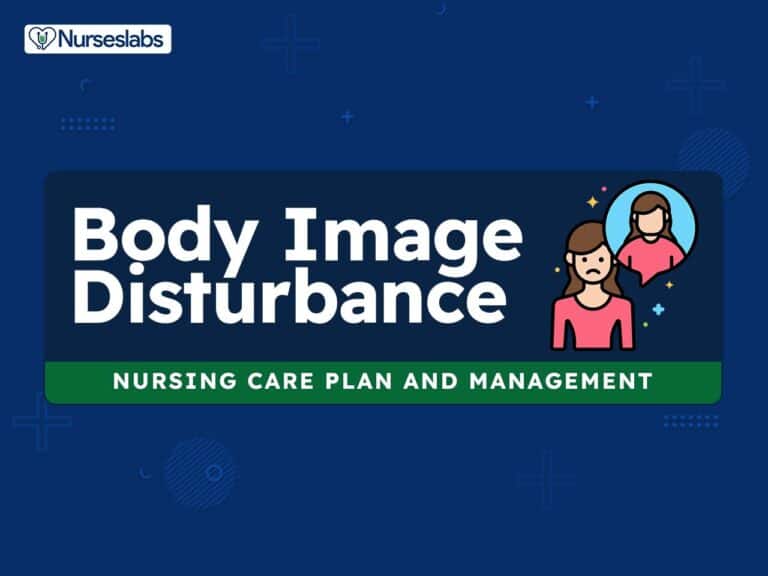

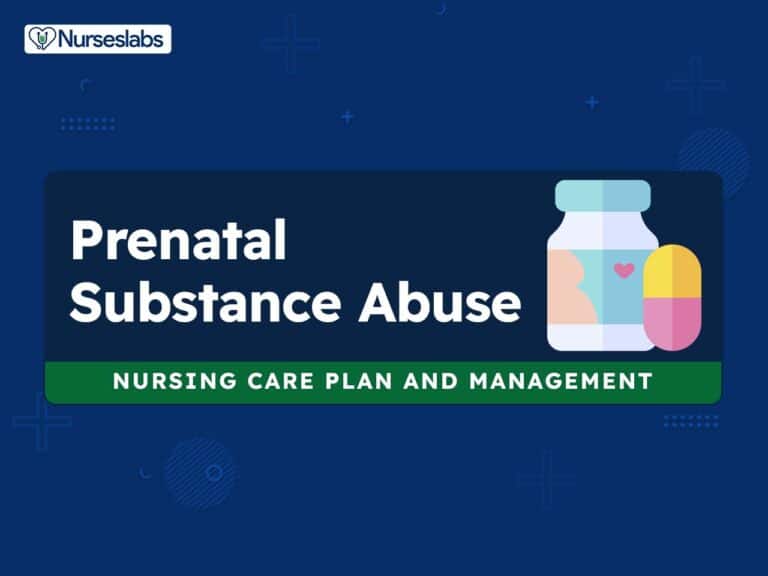
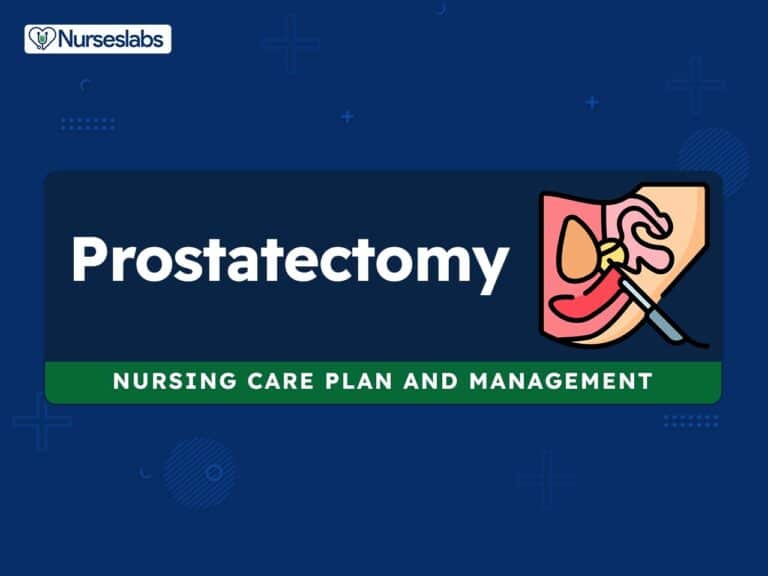
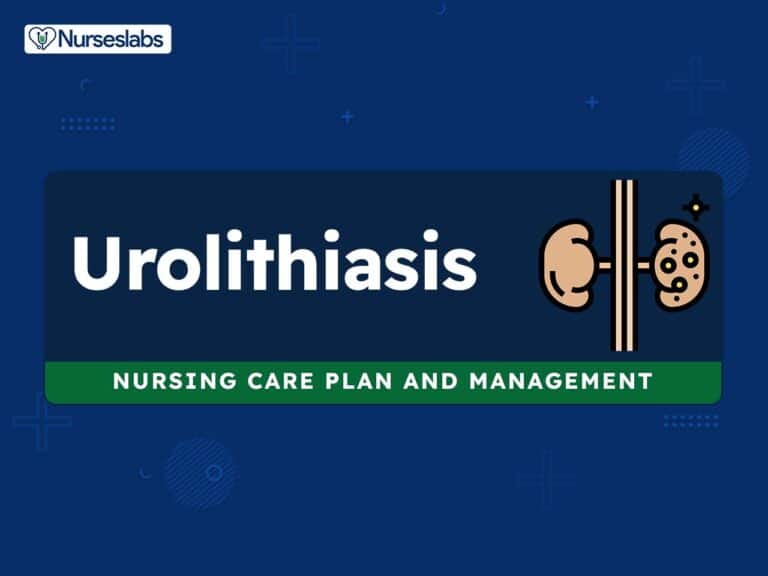
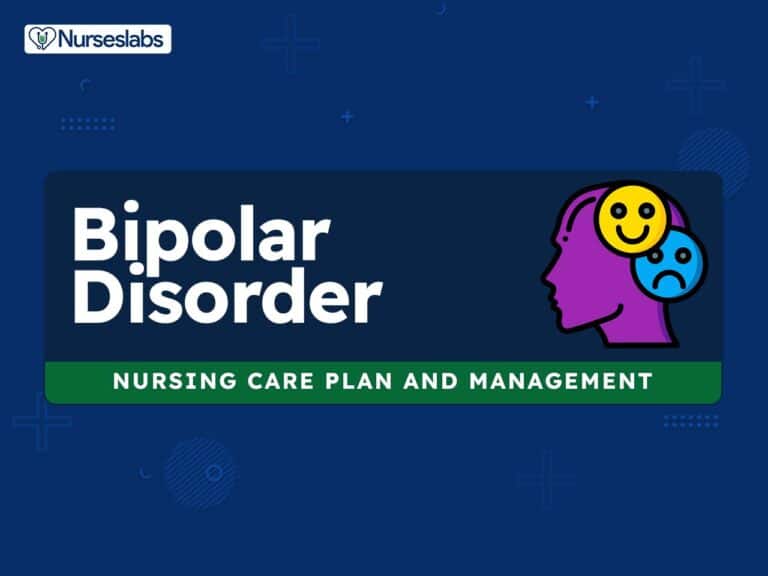
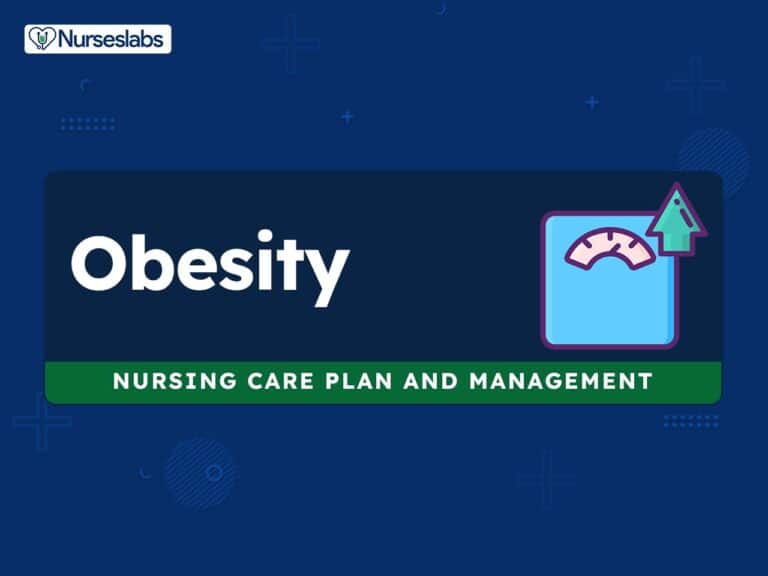

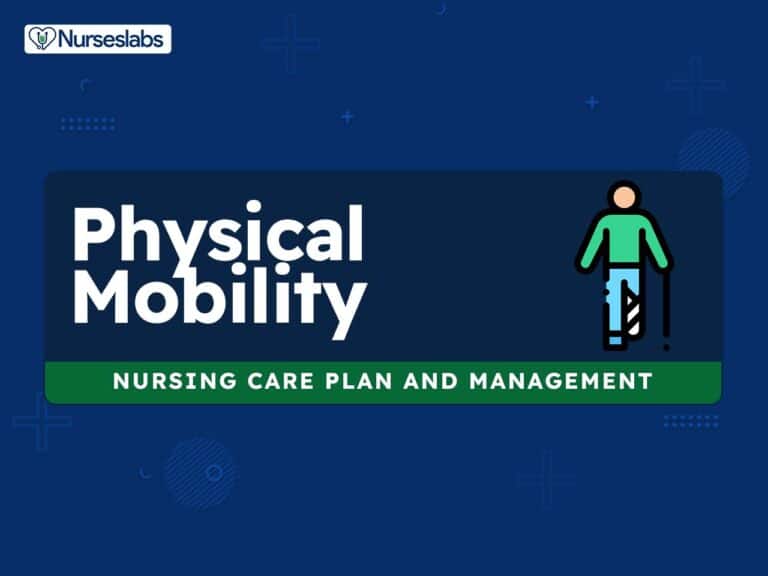
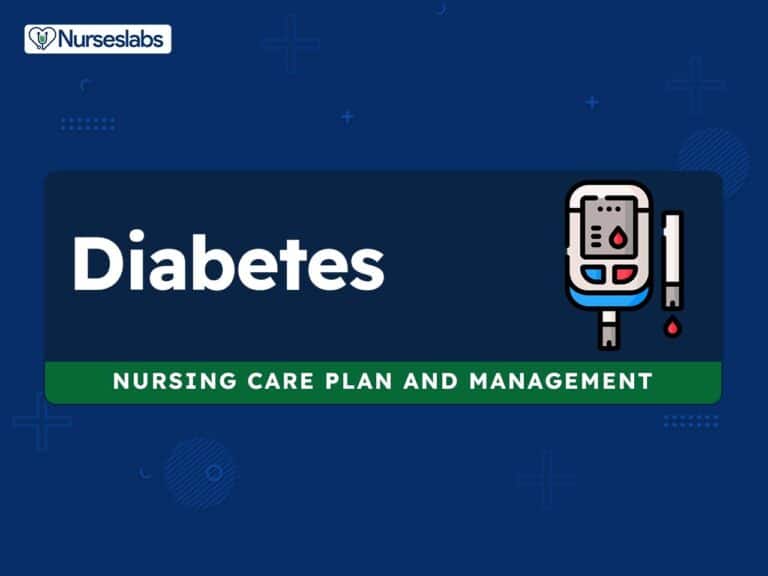
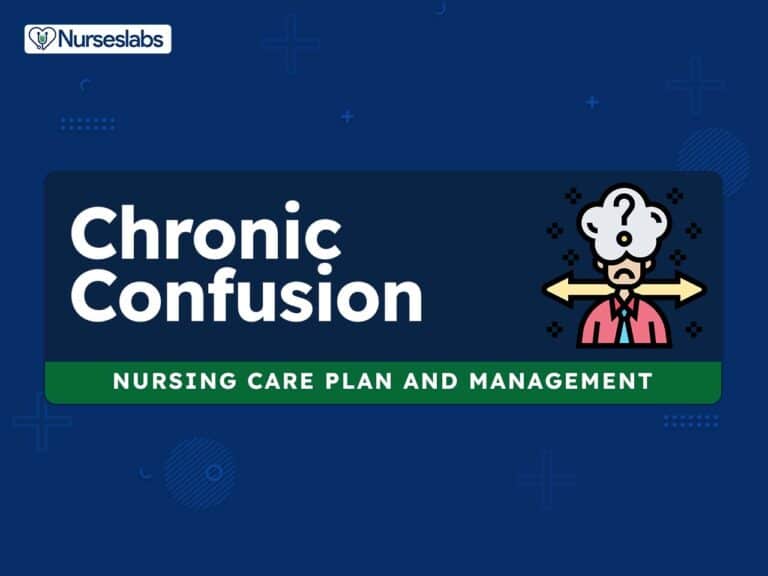
Leave a Comment